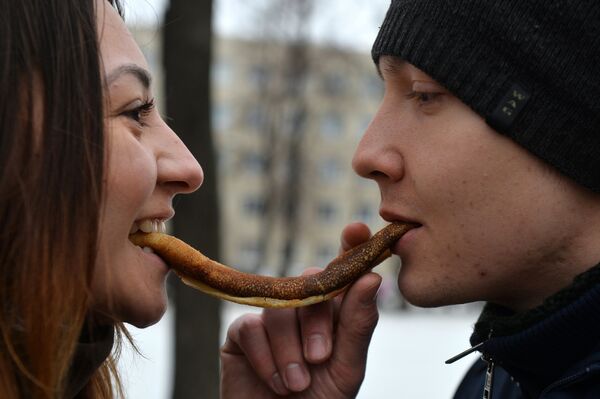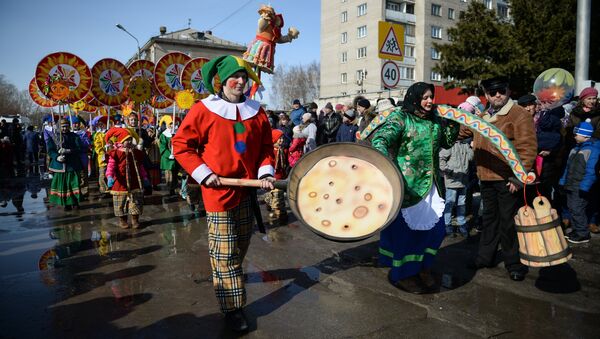The weeklong Pancake festival in Moscow is to end with the baking of a huge pancake with a diameter of three meters.
A crane will set up a huge frying-pan almost 800 kg in weight in the Hermitage Garden in the center of the capital.
#Maslenitsa, célébration du Mardi Gras en #Russie 2016 pic.twitter.com/CszlasPhkt
— ГК РФ в Женеве (@RusConsulGen) 10 марта 2016 г.
The Moscow authorities promised the process will be spectacular and fascinating as the cooking will be done in a very unusual way.
No other Russian city has succeeded in baking such a masterpiece in the last ten years, as it would always rip apart upon being turned.
7th —13th March 2016 is Maslenitsa for Orthodox Christians. Also known as Butter Week, Crepe Week & Cheesefare Week pic.twitter.com/vij6XP4K2P
— Luthien (@Tinuvi3l) 6 марта 2016 г.
Pancake Week (Maslenitsa) is currently underway in Russia, marking the end of winter and the beginning of spring ahead of Lent (fasting which precedes Easter). And pancakes serve as symbols of the sun (golden, round and warm).

The tradition of Maslenitsa dates back to pagan times, when Russian folk would bid farewell to winter and welcome spring. As with many ancient holidays, Maslenitsa has a dual ancestry: pagan and Christian.
On the pagan side, Maslenitsa was celebrated on the vernal equinox. It marked the welcoming of spring, and was all about the enlivening of nature and bounty of sunny warmth.
@Smrgrwl2 12.03.2016-holiday in Russia Maslenitsa,completion of winter. pic.twitter.com/mFOfTOUuWt
— dmitrsimb8@mail.ru (@dmitrsimb8) 12 марта 2016 г.
On the Christian side, Maslenitsa was the last week before the onset of Lent, offering one last chance to bask in worldly delights.
In the eyes of the church Maslenitsa is not just a week of merrymaking, but a whole step-by-step procedure to prepare oneself for a long and exhausting fasting, which, if observed properly, may be a real challenge.
Once Lent itself begins, a proper fast excludes meat, fish, dairy products, and eggs.


